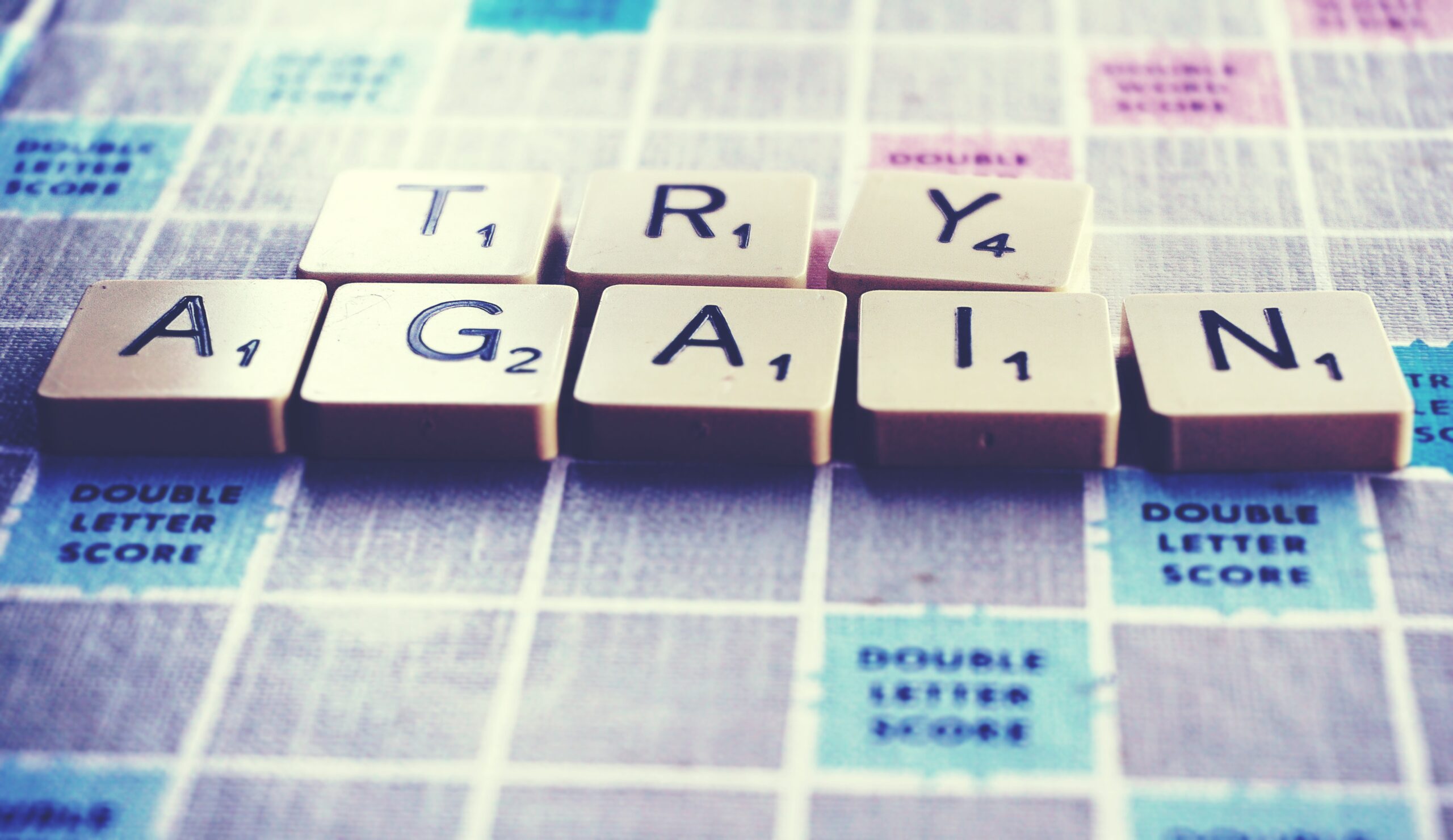The Perks of Failure: And Why you Might Want it on Your Personal Resume

Failure.
We’ve all been there, right?
It’s impossible to go through life without experiencing inevitable failures along the way.
People like to remind us of famous failures: Disney getting fired from a newspaper for not being creative enough; Spielberg being rejected from USC film school not once, but three times; J.K. Rowling’s Harry Potter books rejected by a dozen publishers. … but it rankles more when it happens to us … doesn’t it?
And yet.
What if failure is necessary for the journey forward? What if getting “cozy” with this abominable word is the key for future success?
“Failure is an absolutely essential piece of the human experience,” says Tiffany Andras-Myers, a Cognitive Resilience Expert at RippleWorx. “Failing at something shows us that we are willing to take risks by being at the very edge of our comfort zone. It’s an emblem of courage and an expression fundamentally of our willingness to grow.”
Growing and learning from failure? It’s true! Because when you understand what it takes to get what you want—even if you fall short—you learn a lot.
“You don’t know you’ve crossed the goal line until you understand what it means to NOT cross the goal line,” says Gretchen Jameson, Chief Learning Officer and Group President for Social Impact at Kacmarcik Enterprises. “We can’t just all be winners all the time. Life doesn’t work that way. And the best learning comes from figuring how to achieve that from the other side. We don’t stay STUCK in those failures.”
Jameson remembers a specific instance at the University of Southern California, when she and her fellow doctoral candidates gathered for a workshop. Eager to impress in this elite atmosphere, they were stunned when their professor had them deliver a “Failure Resume” to the rest of the group; sharing (at their discretion) what were essentially some of the biggest “flops” of their lives.
“It was total discomfiture,” Jameson says. “Everybody’s face was like ‘what now?’ … Especially in a room of high achieving people who were all pretty competitive … we didn’t get there because we talk about this all the time. But it was one of the most powerful experiences I’ve ever been a part of.”
What we are NOT
Indeed, while failure teaches us resilience and strength of character, it also can teach us that we are NOT our failure.
“We also have a chance to learn that failing at something does not make US a failure,” Andras-Myers says. “So much of how we experience failure comes down to our perspective of ourselves. If we see ourselves on the hero’s journey, no amount of failure can get us down because at the deepest levels, we have the chance to watch ourselves on a perpetual journey of learning and growing more profoundly toward who we want to be and the life we desire to be living.”
In one of the most epic examples of the hero’s journey, Paulo Coelho wrote an international bestselling book called “The Alchemist.” The story is about a boy who goes on an epic adventure in search of treasure. He encounters what some would consider to be failure after failure, but he refuses to perceive it as such and therein lies all the difference in the world, as his troubles become part of the adventure that shapes who he will become, instead of stumbling blocks to stop him.
“He realized he had to choose between thinking of himself as the poor victim of a thief and as an adventurer in quest of his treasure.” (The Alchemist, Paulo Coelho, 1993, Harper Collins)
This mindset (between victim and adventurer) makes a remarkable difference between failure and progress.
A “growth” mindset
“In the growth mindset, failure can be a painful experience. But it doesn’t define you. It’s a problem to be faced, dealt with, and learned from,” says American Psychologist Carol Dweck, who has framed the concept of the “growth” mindset.
A person with a fixed mindset instead of a growth mindset:
- Avoids challenges
- Gives up easily
- Sees effort as fruitless
- Ignores useful criticism
- Feels threatened by the success of others
- Embrace challenges
- Persist in the face of setbacks
- See effort as the path to mastery
- Learn from criticism
- Are inspired by the success of others
“The passion for stretching yourself and sticking to it, even (or especially) when it’s not going well, is the hallmark of the growth mindset,” Dweck says. “This is the mindset that allows people to thrive during some of the most challenging times in their lives.”
Dr. Martin Seligman, the “father” of positive psychology, says it’s this growth mindset that’s pivotal when learning from failure and moving on.
“We discovered that people who don’t give up have a habit of interpreting setbacks as temporary, local, and changeable. (i.e. It’s going away quickly; it’s just this one situation, and I can do something about it.),” Seligman says. “That suggested how we might immunize people against learned helplessness, against depression and anxiety, and against giving up after failure: by teaching them to think like optimists.”
Thinking like an optimist can affect your next attempt
In fact, while failing at something affects you emotionally, it doesn’t hold true that your next try will be worse. In fact, subsequent physical or cognitive performance after failure tends to NOT get worse, supporting the theory that you need to fail in order to win.
All too often, however, we try to avoid failure at all costs. Even to the point of resetting our goals, simply because we’re terrified of not reaching them. But this is not the answer.
“There has to be a goal line,” Jameson says. “And you’re either gonna hit it or not. But in the NFL, they can’t say ‘well, we didn’t hit it on this series, so we’re gonna move the goal line back 20 yards.’ It doesn’t work that way. It’s more about what happens as you work THROUGH failure to STILL pursue that success.”
Why is this difficult in today’s world?
“It’s funny, any time I present the idea of self-compassion or inherent self-worth to adults they always cringe and ask questions like ‘well if I think I’m already good enough all the time won’t it mean I just won’t set goals and become lazy?’” Andras-Myers says. “The cool thing is that ALL the science shows us exactly the opposite: when failing at something doesn’t immediately mean “I am a failure” we tend to aim higher, work harder, and keep trying despite however many obstacles show up in our path.”
Andras-Myers says that when people find themselves in situations and circumstances that feel unsafe to fail, they begin to shut down.
“When we’re afraid, fundamentally, of making mistakes, what this is often reflective of is that there is a loud self-critic operating in our minds telling us either we’re already not worthy or if we mess up we won’t hold our value anymore,” she says. “So, if you find yourself in this place, ask your shame what it would have you do. To act from courage is to do the exact opposite. Acting in courage doesn’t guarantee the outcome we want, but it does show us we’re stronger than we think!”
Andras-Myers says her grandmother reminded her that you can’t see the end of your own story until you get there. “So instead of seeing anything as a failure, what a beautiful offering it is to our own spirit and the journey of living and being human to trust that everything that happens is leading us tenderly toward exactly what we most want and need.
“Even if we can’t yet see it, can we trust ourselves to keep going: heart-open, mind-resilient, and creative?” she asks. “What if what we deem a failure today leads us to exactly where we want to be tomorrow? Would we still call that a failure?”
